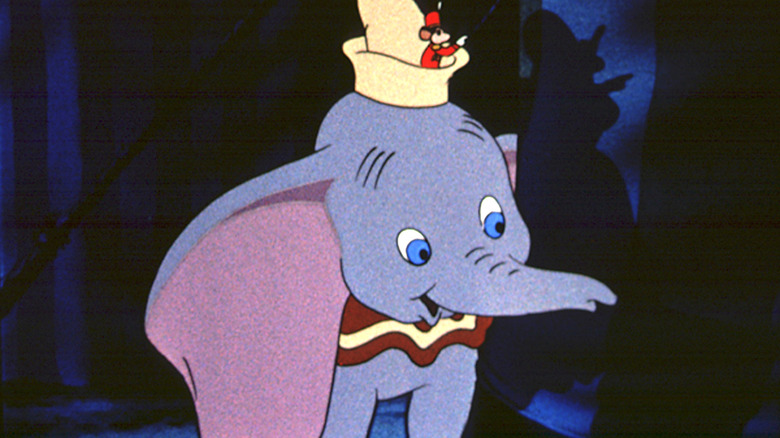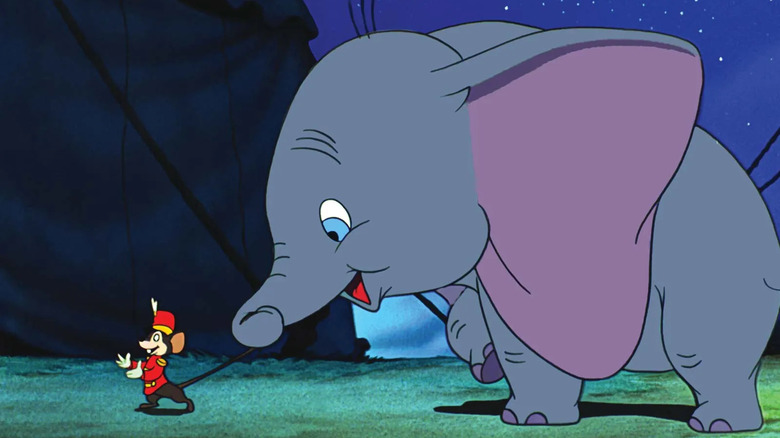Dumbo Would Have Been Time Magazine's 'Mammal-Of-The-Year' If Not For One Horrific Event
On October 23, 1941, "Dumbo" soared into audience members' hearts. With his wide, bright blue eyes and floppy ears as big as his whole body, he quickly stood out as one of the cutest Disney characters ever. Sadly, the playful baby elephant is mocked by others, referred to as "Dumbo" instead of Jumbo Jr., and ridiculed for his oversized ears which give him the ability to fly. In the book "The Animated Man: A Life of Walt Disney," author Michael Barrier notes that the Walt Disney movies "Pinocchio" and "Fantasia" failed at the box office because World War II disrupted the European markets. A successful film was crucial for the studio's continued survival.
Working with a small budget, the filmmakers came up with what Bosley Crowther of The New York Times called "the most genial, the most endearing, the most completely precious cartoon feature film ever to emerge from the magical brushes of Walt Disney's wonder-working artists." The brisk 64-minute tale of the little elephant that could brought Disney back to success by grossing more than $1 million (via Box Office Mojo). Much like Baby Yoda is today, Dumbo became a cuddly and cute icon for audiences everywhere to fall in love with. Nevertheless, a pivotal historical event would sideline his time in the spotlight.
Pearl Harbor changed everything
"Dumbo" was so popular that Time Magazine wanted to feature the lovable little circus star on the cover of its upcoming issue as the "Mammal-of-the-Year." However, less than two months after the movie's premiere, the Japanese military attacked Pearl Harbor on December 7, 1941, prompting the United States to enter World War II. Since the cheerful figure of a flying baby elephant who defied the odds would no longer be appropriate for the cover, it was changed to a portrait of General Douglas MacArthur — a powerful military leader who would embody the spirit of America fighting back.
Time Magazine still included a 1,400-word story on "Dumbo," a fascinating piece that captures the country's attitudes at the time. The (uncredited) author explains how in the aftermath of the Pearl Harbor attack, Dumbo became a poignant American icon:
"The advent of war made him more than ever a superb expression of the democratic way of life. He could only have happened here. Among all the grim and forboding visages of A.D. 1941, his guileless, homely face is the face of a true man of good will. The most appealing new character of this year of war, he is almost sure to end up in the exclusive kingdom of children's classics. He may not become a U.S. folk hero, but he is certainly the mammal-of-the-year."
Through the story of a young elephant who challenges his naysayers, reunites with his mother, and earns fame and fortune in the process, "Dumbo" emerges as a symbol of hope and resilience. Audiences could find solace and inspiration in the sweet, vibrantly-colored film with a simple story that tugs on your heartstrings. "Dumbo" offered a glimmer of optimism during a harrowing time when the world became fraught with conflict and danger.

